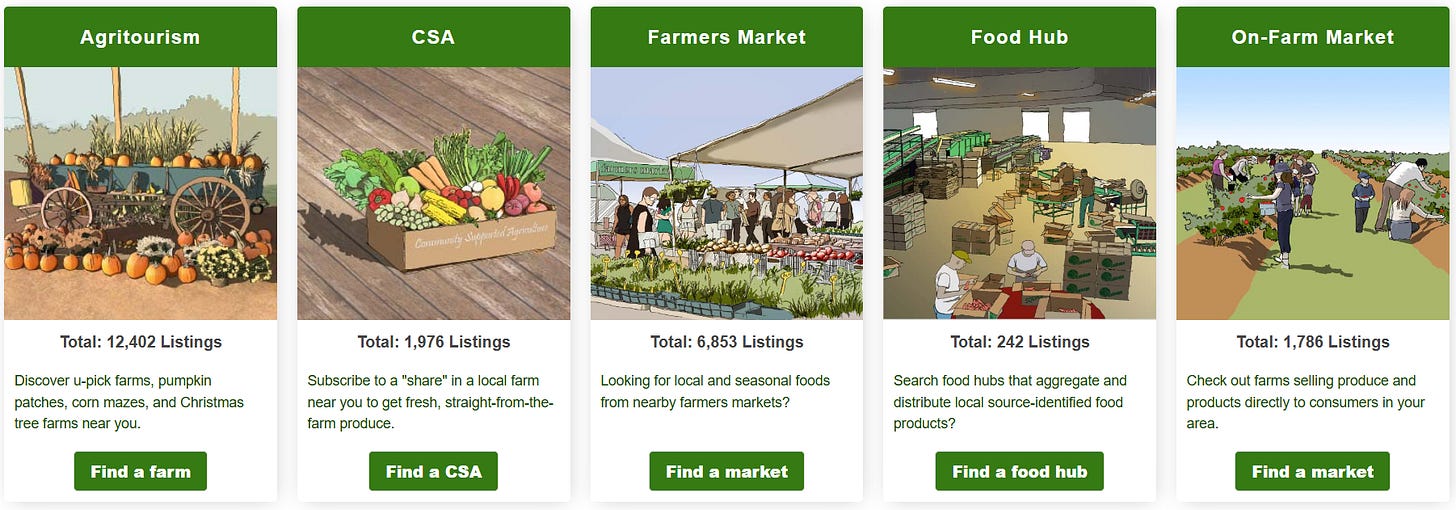Dirty Dozen, Clean 15 Lists
CLEAN SERIES: Safe Veggies & Fruits, Plus Farmer's Market Directory.
Eat Your Veggies! You’ve probably heard this a thousand times.
The Dirty Dozen, Clean 15 Lists below are a helpful guide to conventional foods with the fewest pesticide loads and help you decide when to invest in organic produce. I also provide a directory to find farmer’s markets, CSAs, and other resources for fresh produce.

Dirty Dozen and Clean 15 Lists
Everyone knows that pesticides are potentially toxic to humans and can have both acute and chronic health effects, depending on the quantity and ways in which a person is exposed.
One of the easiest ways to reduce pesticide load is food selection and washing.
If you’re not familiar with The Environmental Working Group (EWG). The EWG is a nonprofit organization focusing on research and advocacy in areas like toxic chemicals, agricultural subsidies, drinking water pollutants, and corporate accountability that aims to protect human health and the environment.
Every year, the EWG publishes the Dirty Dozen and Clean 15 List to help consumers select the least toxic vegetables and fruits. Organic produce is always best because it is grown with natural pesticides that are strictly regulated to prevent excess accumulation in the organic soil. Also, organic farm soil generally has more nutrients and organic matter than conventionally farmed soil. This is due to organic farmers' use of natural methods like compost and manure, which replenish the soil with nutrients, and improve its overall health. However, not everyone has access to a wide variety of organic fruits and vegetables, or can’t afford to eat 100% organic. This is where the list can be helpful. List with images.
The most recent comprehensive list is from testing done throughout 2024. To learn more about their comprehensive shopper’s guide view their press release here.
EWG’s Dirty Dozen List for 2024
Of the 46 items included in their analysis, these 12 fruits and vegetables were most contaminated with pesticides: strawberries, spinach, kale-collard- mustard greens, grapes, peaches, pears, nectarines, apples, bell & hot peppers, cherries, blueberries, and green beans.
EWG’s Clean 15 List for 2024
These 15 items had the lowest amounts of pesticide residues, according to EWG’s analysis of the most recent USDA data: carrots, sweet potatoes, mangoes, mushrooms, watermelon, cabbage, kiwi, honeydew melon, asparagus, sweet peas, papaya, yellow onions, pineapple, sweet corn*, avocados.
EWG’s Middle 19 List for 2024
These 19 items were included in the fruit and vegetable testing data from the USDA and FDA but do not fall into either the Dirty Dozen or Clean Fifteen lists: tomatoes, winter squash, cherry tomatoes, celery, lettuce, tangerines, cucumbers, summer squash*, broccoli, potatoes, plums, eggplant, raspberries, grapefruit, snap peas, oranges, cantaloup, bananas, cauliflower.
*A small amount of sweet corn, papaya and summer squash sold in the United States is produced from genetically modified seeds. Buy organic varieties of these crops if you want to avoid genetically modified produce.
Farmer’s Market Online Directory
The USDA Agricultural Marketing Services maintains a decent list of local farmer’s markets. They have five directory categories and when I searched for the areas I frequent, I found a comprehensive list that included the markets I am familiar with and a few that were new to me. This is a good search tool for wherever you are in the US.
SEARCH THE DIRECTORY: You can click here for the search information page, click here to see the directory page shown above, or click here to search all the directories in one go. Tip: I get better results leaving the first search box blank.
Talk to your vendor: There may be many local farmers in your area that are implementing biodynamic or organic farming, but are not certified organic. Organic produce costs more because of the cost incurred with the organic certification process. I always talk with the owners or those running the stall at the farmer’s market and ask them to tell me about their farm. If they are using natural pesticides and organic farming practices they will gladly volunteer the information. Past that, use your own judgment and discernment. Tip: If their stall has mature leafy greens, such as spinach, too early in the Spring they are not growers, they are shippers. Personally, I don’t buy from them because I don't know anything about the grower(s).
Clean Series on Puck’s
The new Clean Series section of Puck’s Traveling Medicine Show will include clean tips, recipes, and how to detox your home and your life of harmful toxins.
Thanks for Reading! Please like, share, comment, or subscribe. Your likes and comments mean a lot to me. They let me know what content you need most and want to read about. It is one thing to rage against the craziness but quite another to learn and to take action. Puck’s is about taking action - self-empowerment. I learn so much from research that I want to share it!
Produce selection is an easy first step when you want to reduce your toxin load or improve your overall diet. Being surrounded by fresh produce, vibrant colors, and enthusiastic people at your local farmer’s market, many with a festival-like atmosphere is infectious - in a good way!





